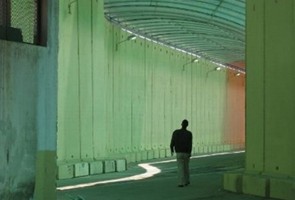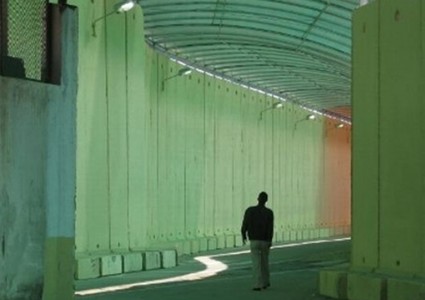
Fifty international aid groups and United Nations agencies issued a joint appeal on Thursday calling on Israel to lift its blockade of the Gaza Strip. “For over five years in Gaza, more than 1.6 million people have been under blockade in violation of international law. More than half of these people are children. We the undersigned say with one voice: ‘end the blockade now,'” the petition said.
Amongst the signatories were Amnesty International, Save the Children, the World Health Organization, Oxfam, the Office of the High Commissioner for Human Rights and five other UN bodies.

Erez checkpoint (Photo: PHR)
According to Gisha – Legal Center for Freedom of Movement: “Five years after Israel closed Gaza’s crossings in the wake of the Hamas takeover in June 14, 2007, Gaza has been somewhat re-opened to access abroad, but sweeping restrictions on movement to Israel and the West Bank remain nearly unchanged. As a result, the prospect of economic recovery is limited, and the integrity of the Palestinian territory, considered a cornerstone of a ‘two-state solution’, is compromised in ways that will be difficult to reverse”.
Although the current Israeli government renounced the logic of the “economic warfare” policy imposed on Gaza from 2007-2010, in practice it is still implementing restrictions with the explicit political aim of “pressuring Hamas” under the ambiguous term “separation policy“. Under this policy, for example, people in Gaza are permitted to export goods abroad that transit through Israel and the West Bank but are prevented from selling the same goods in Israel and the West Bank, where both demand and profitability are much higher.
The separation policy is sustaining the economic anomaly created by the closure, in which productive sectors are paralyzed while the local government’s budget and its narrow tier of beneficiaries enjoy staggering growth. Despite numerous official statements that Israel is committed to economic development in Gaza and despite the relative improvement in Gaza’s economy since 2009, sustainable growth is impossible in these circumstances. The relative growth reflects an acute dependence on external sources of funding and lack of income from exports; it is explained in large part by tunnel-supported construction activity and high public sector employment. Restrictions on travel between Gaza and the West Bank also sever the familial, educational and cultural ties that bind the Palestinian territory.
According to military officials, the separation policy is based on a political decision, rather than being a necessary security measure, yet, despite its far-reaching implications, it remains unclear which governmental branch made the decision to implement the policy and if it has been discussed or otherwise debated, taking into consideration the needs and rights of Gaza residents and Israel’s self-stated interests.
The Palestinian factional rift is exacerbating the separation by contributing to political and institutional fragmentation of the Palestinian territory, and complicating coordination procedures needed to facilitate movement between Gaza, Israel and the West Bank.
Gisha Executive Director Sari Bashi said: “Palestinians in Gaza can travel to and trade with almost any place in the world – except Palestinian towns in the West Bank. Israel’s separation policy is blocking economic recovery in Gaza and deepening what threatens to be an irreversible split between the two parts of the Palestinian territory”.
Related:


